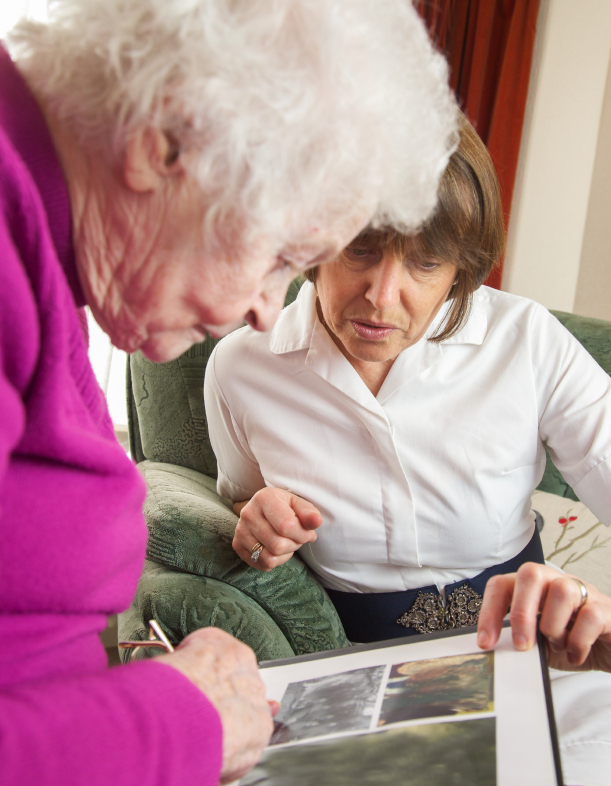The holidays are approaching and, while they will be over in the blink of an eye, most of us find our schedules packed with activities. For those with family members challenged with dementia there are a few extra touches to be mindful of in order that the entire family can have a holiday filled with memories to cherish.
- Family traditions may be lovingly remembered by aging seniors and serve as a gathering point for all generations but be sure to pick and choose so that the holidays don’t become overwhelming
- Keep decorations simple – avoid cluttering open spaces with things that could become trip hazards or force different routes around a once familiar home leading to disorientation
- Be mindful that lots of bright lights, blinking lights and loud noises can be disturbing, and even frightening, to someone with diminished eyesight and hearing
- Be cautious with bowls of snacks such as candy that may be tempting to someone whose diet requires minimal sweets
- Be equally caution about using fake fruits and candies as part of your décor remembering that a person with dementia may not be able to tell the difference between real and fake
- Traditions that involve shopping for specific foods, preparing those holiday breads, cakes and cookies along with getting cards ready for mailing may be lovely times to spend with aging seniors provided you keep the environment calm and focus on the tasks that the senior can accomplish successfully.
- If your aging senior lives in long term care, consider having a small family celebration at the care home which is a familiar, safe environment for someone challenged with dementia
- Focus more on singing familiar songs, sharing traditional treats and making beautiful memories for the entire family than on gifts that aren’t needed
- Long term memory is often still available to an aging senior, even with dementia, so taking advantage of an opportunity to go through family photos and hear stories from seniors may be a gift to everyone
- Families are often geographically dispersed these days so don’t assume that a senior will remember someone they haven’t seen in many months or years. Introduce them and help the senior’s memory connect by providing context, for example, “Mom, you haven’t seen my oldest son, Peter, since he graduated and moved out west. Do you remember him coming to mow your lawn every Saturday when he was a teenager? And you would always have some of your famous chocolate chip cookies to send home with him when he was finished!”
- Make sure that visitors to your home understand the limits of your aging senior’s ability to cope. Children might be asked to leave noisy toys at home, someone wishing to take pictures might be advised to turn the flash off on the camera as it can be disturbing or perhaps scheduling visitors around afternoon naps would be helpful
- Be mindful that medication and bathroom schedules don’t get lost in the midst of celebrations
- Take note of noise in the environment – a stereo playing music mashed together with the game on TV in the next room and a teenager playing Walking Dead on their iPhone may overwhelm conversation for a senior with hearing aids. Turning the stereo down, closing the door to the TV room and asking the teen to use ear buds are examples of solutions that let everyone co-exist while allowing the senior to participate in conversation.
- A senior with dementia is very dependent on routine so whether you’re bringing an aging parent to your home for the holidays or going to their long term care residence for a celebration, be mindful of staying as close to their routine as possible so that the time you spend together is successful
However you choose to celebrate your holiday traditions, remember that taking it down a notch or two may benefit not only your aging senior but give the entire family a better chance to breathe and be in the moment.






Add Your Voice
0 Comments
Join the Discussion